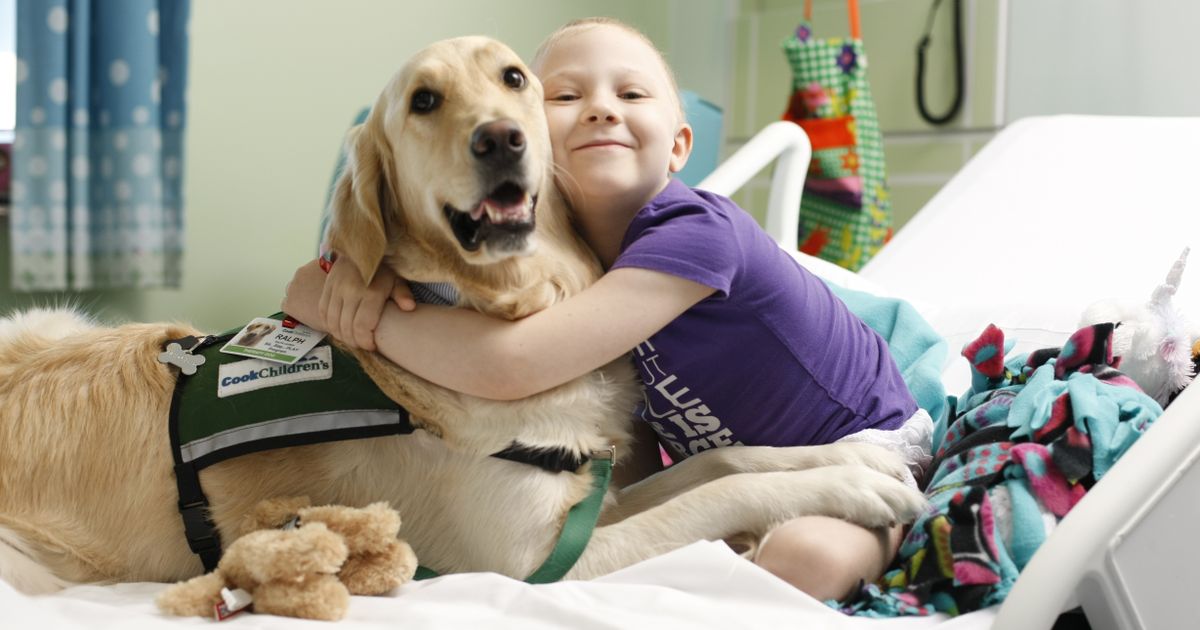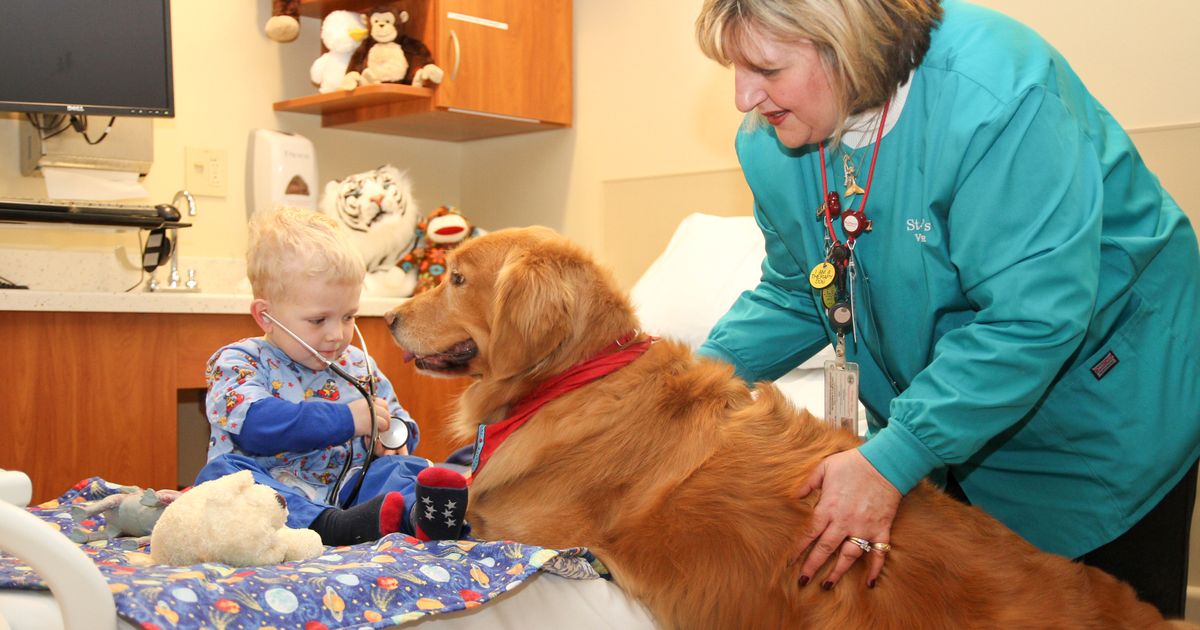The Amazing Benefits Of Pet Therapy
Why It Works

Animals have long served as an essential source of social contact and bonding for human beings since the dawn of time, and pet companionship has been associated with improving mental, social, and physical health. Research has proven pet therapy serves as a fantastic aid to relaxation, a decrease in blood pressure, and increased peripheral skin temperature. Recently, a study was conducted on the Pets at Work (PAWS) program and the overall benefits of pet therapy on hospitalized pediatric patients.
The study discovered pet visits provided stress relief, normalized the hospital environment, generated positive rapport and feelings, and improved satisfaction and morale for patients and their families. Pet therapy also had an immense relaxing and stimulatory effects on patients, such as helping calm a child before a procedure or waking a child post-surgery, with these results corresponding with changes in the heart and respiratory rates of the patient.
Continue reading to find out how pet therapy is an extraordinary source of comfort and emotional support for patients in a hospital or care facility.
A Source Of Emotional Support

A similar study was conducted on the emotional impact of a pet therapy program, focusing on Pet Pals on pediatric patients, and how animals help to reduce a hospitalized child’s anxiety and distress. The study found pet therapy compared to child-life group, another form of therapy for children, where children in a hospital setting experienced more anticipatory excitement and displayed a more positive effect when interacting with a pet rather than in group therapy.
Parents’ ratings of their child’s mood were also substantially improved while participating in pet therapy. Another similar study also found pet therapy was highly effective in improving the overall mood and well-being of patients, especially in children. Patients and their parents also experienced an incredible reduction in psychological distress when interacting with a therapy animal. Pet therapy has also shown to help facilitate a patient’s adaptation to the therapeutic process they may be subjected to.
Keep reading to reveal how pet therapy can drastically reduce the physical pain a patient may experience while undergoing treatment.
